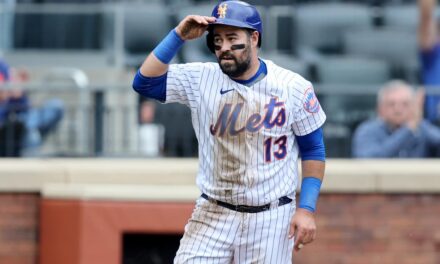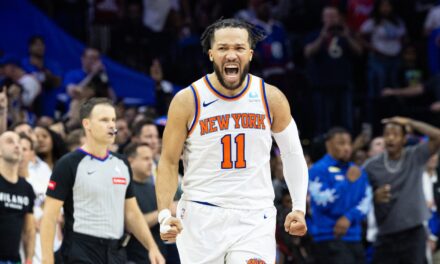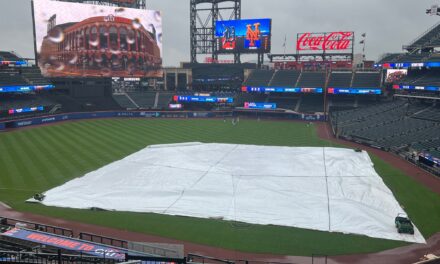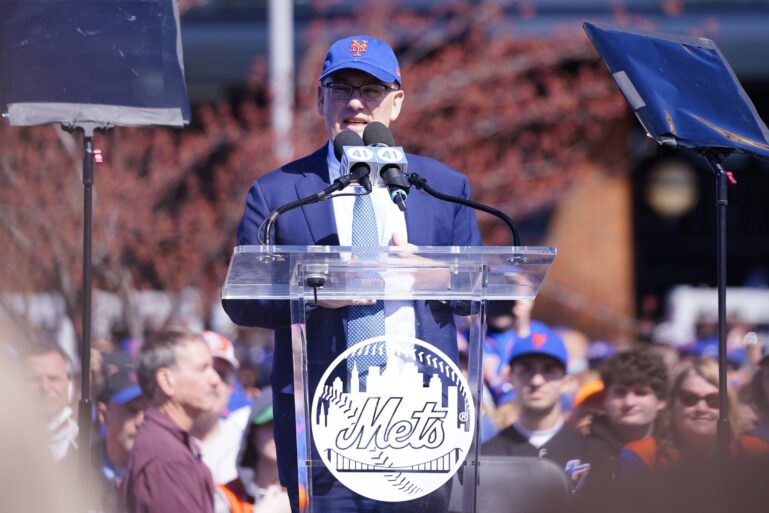
Steve Cohen. Gregory Fisher-USA TODAY Sports
Recently, according to Evan Drellich of the Athletic, MLBPA’s president, Tony Clark, spoke on a topic that relates closely with New York Mets. At a recently opened satellite office, Clark restated the MLBPA’s stance on a potential salary cap.
He said, “We don’t have a cap, we’re not going to agree to a cap.” His rationale was, “A salary cap is the ultimate restriction on player value and player salary. We believe in a market system. The market system has served our players, our team, and our game very well.”
It is not surprising, in the slightest, that this is the MLBPA’s and the player’s stance. The lack of a hard salary cap gives the teams freedom to spend as much as they want (to an extent). In other league’s around America, hard caps limit the ability for teams to hand out numerous lucrative contracts.
It’s simple, not having a hard cap has enabled more money to be given to players. Teams would be much more cautious if they had to navigate a hard cap.
As the Athletic article details, the issue is being brought up due to the alleged financial disparities among teams. Basically, by having no hard-structured spending limits (hard salary cap and floor), certain teams are able to construct more competitive rosters than smaller market teams due to that alleged financial disparity and subsequent spending.
By instituting a hard cap, the hope is it would promote parity by having teams spend similar amounts. Though, in reality, it is a plea by some owners to alleviate the pressure that comes from their lack of spending in comparison to some of their peers. The big spenders in the league are making the “cheap” owners look bad.
With all that being said, the reason why this topic relates directly to the New York Mets is simple. Mets’ owner Steve Cohen.
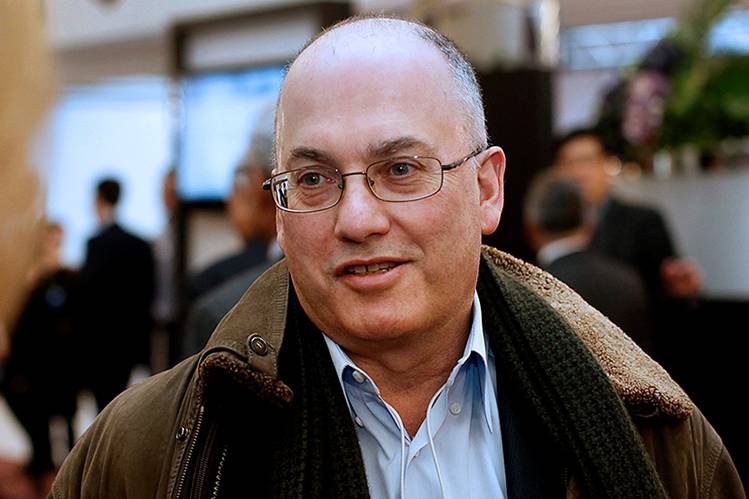
Steve Cohen. Photo: Wall Street Journal.
Cohen’s willingness to spend whatever it takes to be competitive is well documented by now. So much so, the newest CBA had a so-called “Cohen tax” introduced (highest threshold of the luxury tax). Additionally, Cohen’s inclination to spend so much has also reportedly drawn the ire of some owners around the league.
To put it in context, per Fangraphs, the Mets’ total projected 2023 payroll is tops in baseball at $355 million. That figure is $297 million higher than the league’s lowest payroll – the Oakland Athletics. Further, the Mets’ payroll is at least $250 million more than nine of the league’s 30 teams. Lastly, if you added up the total payrolls of the Athletics, Orioles, Pirates, Rays, and Reds you would get exactly $355 million, the projected figure of the Mets’ 2023 payroll.
Based off this information above, you can infer one of the main reasons for the push by some owners for a salary cap is due to Cohen and the Mets, as well as other large market teams’, spending habits. Simply put, some owners want a hard salary cap because team’s like the Mets are spending more, and those owners of the “smaller market” teams simply do not want to. This, in return, is making them look bad, and adding the aforementioned unwanted pressure for them to spend more.
An addition of a hard salary cap would in return restrict the Mets, and other teams such as the Padres and Yankees, from spending at the rapid rate they do. Luckily, and rightfully so, the MLBPA has no plans to add a salary cap any time soon. Which, given the benefits that the lack of a hard salary cap bring to the players, makes all the sense in the world.
Since Cohen officially bought the Mets in November of 2020, his impact has been extreme. Both on the Mets, and apparently, the league as a whole. So much so, that the newest league-impact is a push for a spending limit that would negatively influence players (the hard salary cap).
Though, rightfully, the MLBPA has no plans to agree to this cap. So, it appears, as Cohen recommended in an interview to ESPN’s Jeff Passan, other owners should just simply spend more.


